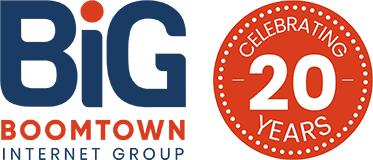By now I’m sure that you have already read articles that explore SEO trends for 2016, however I promise that my post will be concise, and include my thoughts and predictions for what will help your SEO Trends in 2016.
Is SEO Going to Die in 2016?
First, I would like to say that Organic SEO will never die and will remain in full swing as long as search engines (in any form) still exist. It would be suicidal for a search engine to try to kill SEO because users do not want to see only ads in their search results. Search engines are working to improve the quality of their search results, in order to provide a better user experience. Google’s Executive Chairman Eric Schmidt confirmed that when he said, “We built Google for users, not websites ”.
In Fact SEO Budgets May Increase in 2016:
Okay, let’s look at this a different way. After less than two decades, digital marketing is projected to comprise 30% of company’s overall marking budget in the coming year, while surpassing all other marketing media except TV. After much research our CEO, Sue McCrossin, wrote a detailed blog post, in which she projects that digital marketing budgets will continue to grow to 35% by 2019. SEO budgets will account for 10% of the overall digital marketing budget, and content marketing will account for 25%. Since SEO has very good return on investment, its budget will increase not only in 2016, but also will continue to increase for years to come.
Both SEO and Google are in their teenage years. Therefore after making their childhood mistakes, they are becoming more mature and now offer their users better results. For example, Google has personalized search results based on user’s interests. Google did this to survive.
Google’s Survival Plan
Yes you are reading it right, Google’s Survival Plan. I am fairly certain that Google has made its recent updates as a way to remain at the top of the chart while suppressing its biggest competitors, Facebook’s Graph Search and DuckDuckGo. Mark Zuckerberg said, “Graph Search is designed to take a precise query and return to you the answer… not links to other places that might take you to the answer.” If Facebook has no result in Graph Search, it will show results from Bing. On the other hand, for search engine users who are concerned with privacy, DuckDuckGo provides better results without compromising personal privacy.
Therefore Google wants to offer a personalized search result that will keep users happy. Let’s take a quick look at previous major Google updates.
- Panda Update: Google’s first major update in 2011 took steps towards improving user experience. Google targeted content farms (websites that used duplicate and thin content). After this update, websites that aimed to get better ranking with spam content were removed from search results, which in turn helped actual businesses become more visible in search rankings. However, Google also penalized many good websites with this update, and still showed websites with duplicate content in search results. People began to engage in negative SEO in order to surpass their competitors.
- Penguin Update: Google’s second major update attempted to target spam links. There are thousands of directory sites that proliferate links to other websites, in order to increase link juice and ranking. Google penalized both t
he spam directory and the website receiving links. In my opinion, it was a bad idea to target websites that received links from spam sites because negative SEO techniques were further developed and thousands of good website were penalized.
- Hummingbird Update: This update made it clear that Google’s intentions are to deliver better search result in the future, by changing the core of their ranking algorithm.
- Pigeon Update: This update helped local businesses get better rankings in their area, if they had a valid Google+ local page. However, I personally am not happy with Google’s frequent policy changes regarding Google+ local pages. Many business owners were not able to understand the changes, and as a result lost ranking. Although I am happy to see that Google improved the quality of local listings, I believe Google should have a better way to inform business owners about how to keep their local pages up to date and compliant with Google guidelines. Since most local business owners don’t have enough resources, internet knowledge or time to stay up to date on search engines updates, Google makes it hard for small business to rank well.
- Quality Update: I would prefer to say this is a set of updates starting with the March 16, 2015 update of doorway pages to December 12, 2015 (no update announced, however huge change shown in MozCast) including a mobile update on 21st April, 2015. All these updates tweaked previous updates in an attempt to make search results better.
- RankBrain: Danny Sullivan of Search engine land thinks it’s part of Hummingbird. I agree with Danny, I also think this is an update that is going play a significant role in 2016 for voice search!
As promised, I won’t make this blog post too long! For further reading, here is an excellent post explaining Panda, Penguin, Hummingbird and pigeon updates by Neil Patel. If you take a deeper look into these updates, you will notice that Google wants to make search results better. This process will continue in 2016.
How to Increase Organic Rankings in 2016?
In reference to SEO, “Honestly Is the Best Policy!” If nothing else, make sure your website offers your user the following 3C’s and you will succeed:
Let’s explore the essential 3C’s a little more:
- Capability: Similar to 2015, in 2016 websites that provide a better user experience, information, etc. will play a major role in search ranking. In order to so, your website must be compliant with Google’s guidelines about the following
- No Spam Policy: Make sure that your site is not involved with any kind of spam activities that potentially increase search engine ranking. Just like in previous years, there will be no tolerance for all spam activities in 2016.
- Provide Correct Information: Make sure your website has the proper information architecture and user can navigate the site to find their desired information. Visitor’s satisfaction will play a significant role in 2016. In order to provide correct information, you should focus on the following:
- Select the Right Keywords: As voice search will continue to increase in coming years; you may notice significant importance for long tail keywords. However if you already rank for main industry terms, you will also gain visibility on many broad terms. Therefore, your selection of the right keywords will once again be key. For more information on how to do a keyword analysis, read my colleague Melissa Howe’s recent post.
- On-Page Optimization: Make sure you have properly optimized around the right keywords in “meta tags” and “header tags”, “alt tags” etc. According to Searchmetrics’ 2015 Ranking Factors report, top-ranking pages saw a significant increase in the total number of keywords used in the text. I think it will be better to use keywords in a way that can also be interesting for users using relevant terms, synonyms, singular and plural phrases. It’s important to not only focus on matching phrases.
- Content Structure: Make sure your content has enough animation, an interactive menu, images, heading, internal links, etc. in order to help your user to get the most out of your content while staying on your site. I’ve also noticed that within the last year making your pages attractive and user friendly with all the related details really helps improve rankings.
- Internal Linking: Internal linking will be another factor that will help improve your search raking in 2016. Internal linking will help to index your pages and as a result, increase your rank.
- Mobile SEO: Google says that more searches happen from a mobile device than desktop now, therefore you should make sure that your website ranks well for mobile devices. Here is a good article for mobile optimization.
- Technical SEO: Make sure your website has the following:
- Google announced Accelerated Mobile Pages on 7th October, 2015. AMP pages are a new open source project supported by other major internet players including Yahoo, LinkedIn, Twitter, WordPress.com, Pinterest, Parse.ly, ChartBeat, and Adobe Analytics etc. The aim of the project is to enable pages to load more quickly on mobile. It’s basically Google’s answer to Facebook’s Instant Articles.
- Minimal Page Load Time for desktop and other device will be another major factor in 2016.
- Implemented Structured Data/Microdata perfectly.
- Is Mobile Friendly and works across over all devices and platforms.
- No loose content, if you have any old posts that are useless now, you should delete them and add redirects to an alternative page.
- Your website should not have tons of 404 error pages.While redirects keep your site up-to date, there should not be redirect chains that confuse search engines.
- Use proper canonical tags referring to the correct pages.If you have pages with duplicate content, you should correctly use canonical tags otherwise it will have a negative effect on your ranking. Make sure to set them up correctly though, because using the wrong canonical tag will also have a negative impact.
- Blocked Content: If there are duplicate pages on your website and you are blocking them using robots.txt that might affect overall rankings. Google would rather you use another method (Meta robots tags, canonical Meta Tags OR X-Robots-Tag) Many sites use Robots.txt to block CSS or JS and this might negatively impact rankings as well.
Google already announced the depreciation of its AJAX crawling scheme. The bot is also able to crawl JS and CSS now. We have already seen the impact of this last year on many websites, which blocked JS and CSS using robots.txt. In 2016 JavaScript and CSS will play a major role in technical SEO. - User Behavior: This may be another significant ranking signal in 2016. (I predict that Google and Bing will announce it publicly.)
- CTR: Make sure your meta-titles and descriptions are properly optimized and attractive, so that visitors will want to click on your link.
- Bounce Rate: Try to engage your visitors, in order to reduce your bounce rate. You will want to make sure your landing pages are optimized.
- Visitor’s satisfaction: If your visitor’s search ends at your website and they did not search the query again, your ranking will increase within search engines. As Google has implemented artificial intelligence, I am positive this factor will be added to the ranking algorithm (or it may have been added already).
- Capitalize via Re-engagement: You may want to offer a loyalty program that provides an incentive to visit again or influence your users to share socially. As these will not only help you to get returning visitors but also help you increase the quality of your website, which will also help in ranking.
- Voice Search & Rank Brain: With Google Now, it is mandatory to optimize your website to cater to voice search queries. For more information, refer to my colleague Megan Kelly’s post “Effect of Colloquial Search in 2016”.
- Confidence: Give users the Confidence to browse your website securely: Yes, this will ensure a better user experience. Still I would like to make another point here, as I think this will be a crucial factor in the coming year. If your website has been hacked, it’s not your fault. However, Google will apply a manual penalty to your website, as soon as its bot detects malicious code. To overcome this penalty make sure your website is hosted on a secure server. I advice using HTTP 2.0 for better security. I would also move to HTTPS (if you have not done this yet), which will give you an extra advantage.
- Citation: Mentions of your site over the web help your users to learn about your website. Last but not least, you have to make sure you get optimum citations to your website over the web, in many different ways.
- Review your links and remove any bad ones by contacting the linking site and asking or by using the disavow file in Google’s Search Console. Review your backlinks on a regular basis.
- Local Listing: If you offer any products or services in local areas make sure you have a properly optimized Google+ page (for more information, read Jenna Steven’s Post “The New Google+”). Also, make sure you are listed on major local sites including Bing places, Yelp etc.
- Reputation Management will also affect your ranking. If you have negative ratings or reviews, this will decrease ranking. Therefore, make sure you maintain a positive reputation. Here is good post on Reputation management for SMB.
- Social Media: Social media can help you maintain your social reputation, and it also helps with online branding, increases influence and mentions on the web. Social media activity will definitely increase search ranking in 2016
- Content Marketing: It will play a major role in creation of citations in 2016 and will help you stay on top. Here is another very good article by Sue McCrossin, which helps you understand content marketing. Content marketing started with the downfall of traditional link building. Therefore, it will play a useful role in citation building.
If you think I missed anything which may play a significance role in 2016, or have any question or feedback, please let me know in a comment below.




